Hello everyone! My name is Derek, and I’m the customer manager at Fairwill Display. Today, I want to talk about something crucial for our business: What is the best glass for display cases? As a business that specializes in glass showcases for wholesalers, we understand the importance of your display needs. Choosing the right type of glass is crucial for these displays. In this article, I’ll share our insights and help you decide which glass is the best for your display cases. In conclusion, Tempered Glass, Acrylic Glass, Laminated Glass, PETG, and Polycarbonate are the best glass for display cases.
Understanding the Importance of Glass Quality
When considering what is the best glass for display cases, quality should be your top priority. High-quality glass plays a crucial role in showcasing your products effectively and safely. It can enhance the visibility and appeal of your items, making them more attractive to customers and thereby boosting sales. At Fairwill Display, we firmly believe that investing in high-quality glass is essential for creating effective display cases. These display cases not only look good but also stand the test of time.
Quality glass makes a significant difference in the presentation of your products. Clear, flawless glass ensures viewers see your items in their true colors and details, without any distortion. This is particularly important for retail environments where the visual appeal of products can influence buying decisions. A well-made display case with high-quality glass can highlight the best features of your products, drawing customers’ attention. This enhances their shopping experience.
Moreover, high-quality glass contributes to the durability of your display cases. At Fairwill Display, we understand that display cases need to withstand daily wear and tear, especially in busy retail settings. Inferior glass can easily scratch, chip, or break, leading to frequent replacements and higher costs over time. On the other hand, top-grade glass is more resistant to damage. This ensures that your display cases maintain their appearance and functionality for a longer period. This durability translates into cost savings and less hassle in the long run.
Safety is another critical aspect that high-quality glass addresses. Low-quality glass can pose significant safety risks if it breaks, potentially injuring customers or employees. Designers create high-quality glass, particularly tempered, to break into small pieces. This can minimize the risk of injury. This safety feature is especially important in public spaces and high-traffic areas where the likelihood of accidental impacts is higher.
In conclusion, when determining what is the best glass for display cases, prioritizing quality is essential. The right glass can significantly enhance the presentation, durability, and safety of your displays.
Tempered Glass: A Top Contender for Display Cases
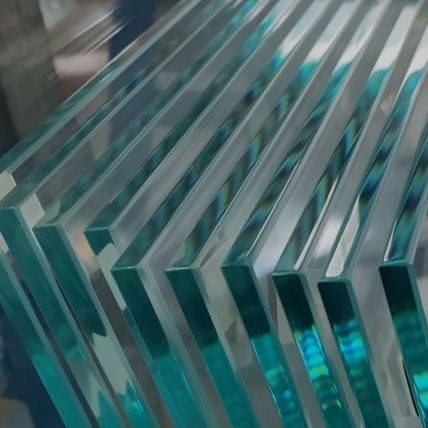
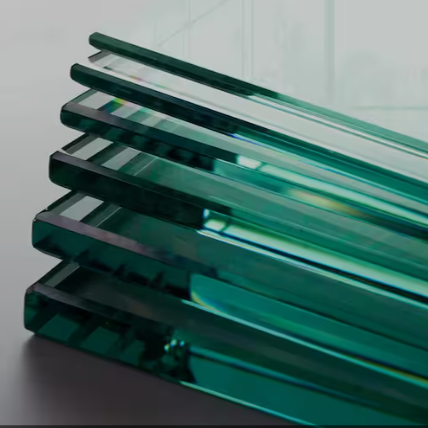
Tempered glass is one of the best options for display cases. Tempered glass is much stronger and safer than regular glass. A heat-treatment process significantly enhances its durability, achieving this strength. The process involves heating the glass to around 620 degrees Celsius and then rapidly cooling it. This process alters the internal structure of the glass, making it up to four times stronger than untreated glass. This enhanced strength makes tempered glass an excellent choice for high-traffic areas where safety is a primary concern.
If tempered glass does break, it shatters into small, blunt pieces rather than sharp, jagged shards. This characteristic is crucial for reducing the risk of injury, making tempered glass a safer alternative to traditional glass.People frequently handle displays and subject them to accidental impacts in environments such as retail stores, museums, and public buildings. In these settings, this safety feature is particularly beneficial. It helps to prevent injuries and maintain a safe environment. The reduced risk of injury protects both customers and staff, providing peace of mind in busy environments.
Tempered glass is often used in high-end displays due to its superior strength and safety features. It might be more expensive than regular glass, but the investment is justified by the benefits it offers. The durability of tempered glass means that it is less likely to need replacing, saving costs in the long run. The initial higher cost is offset by the reduced maintenance and replacement expenses. For businesses, this durability translates into fewer disruptions and lower overall costs.
The aesthetic appeal of tempered glass is another reason it is favored for display cases. It maintains the clear, transparent look of regular glass, ensuring that the items on display are showcased beautifully. For those who prefer the traditional look and feel of glass but need enhanced safety, tempered glass is the best option. It combines classic aesthetics with superior safety features. It combines the elegance of glass with the practical benefits of increased strength and safety.
Tempered glass also offers excellent thermal resistance. It can withstand significant temperature fluctuations without losing its structural integrity. This property makes it suitable for both indoor and outdoor applications. In settings where temperature changes are common, such as near windows or in outdoor displays, tempered glass ensures that the display cases remain intact and visually appealing.
The versatility of tempered glass extends to various applications beyond display cases. It is used in storefront windows, glass doors, and even in architectural features such as glass railings and partitions. This wide range of applications highlights the adaptability of tempered glass and its suitability for different environments. Its ability to provide safety, durability, and aesthetic appeal makes it a top contender for any application where glass is used.
For businesses looking to enhance their display solutions, choosing tempered glass can offer significant advantages. At Fairwill Display, we recognize the importance of using high-quality materials for our products. Our tempered glass showcases are designed to provide the best combination of safety, durability, and visual appeal.
In conclusion, if you’re wondering, “What is the best glass for display cases?” tempered glass stands out as a top contender. Its superior strength, safety features, and aesthetic qualities make it an ideal choice for various applications. The peace of mind and durability it offers are well worth the investment. By choosing tempered glass, you are ensuring that your display cases look great. Additionally, they provide a safe solution for showcasing your products. This combination makes them a reliable choice for your display needs. At Fairwill Display, we are committed to offering the highest quality tempered glass products to meet your display needs.
Acrylic Glass: Lightweight and Durable
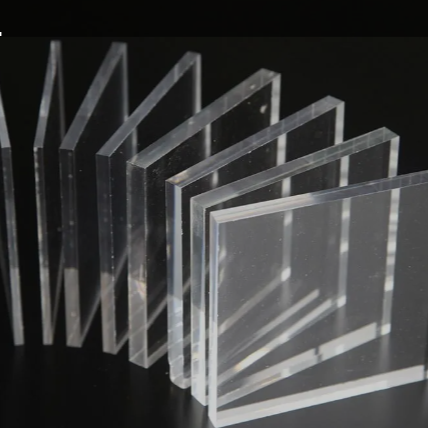
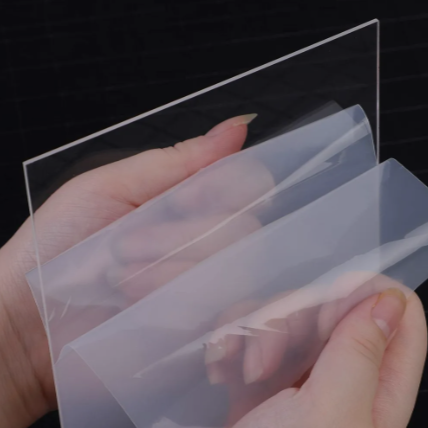
Another fantastic alternative to traditional glass is acrylic glass, also known as plexiglass. Acrylic is significantly lighter than glass, making it easier to handle and install. This lightweight nature simplifies the process of setting up displays and reduces the labor and time involved. For businesses that frequently change their display setups, the ease of handling acrylic glass can be a significant advantage, saving both time and effort.
In addition to being lightweight, acrylic glass is highly durable and shatter-resistant. Unlike glass, which can break into sharp, dangerous shards, acrylic glass is much less likely to shatter. If it does break, it tends to fracture into larger, blunt pieces that pose less risk of injury. This makes acrylic glass a safer option for busy environments where accidents can happen, such as retail stores, museums, and public spaces. The enhanced durability of acrylic glass ensures that display cases remain intact and functional even in high-traffic areas.
Acrylic glass offers excellent optical clarity, which is one of its most appealing features. Similar to regular glass, it provides a clear, unobstructed view of the items on display, allowing customers to appreciate the details and quality of the products. This clarity is crucial for showcasing products effectively, enhancing their visual appeal, and attracting potential buyers. Whether you are displaying fine jewelry, electronics, or any other merchandise, acrylic glass ensures that your products are seen in the best possible light.
One of the significant advantages of acrylic glass is its UV resistance. Over time, exposure to sunlight can cause some materials to yellow or degrade, affecting their appearance and functionality. Acrylic glass, however, is resistant to UV rays, meaning it won’t yellow or lose its clarity even after prolonged exposure to sunlight. This characteristic is particularly important for outdoor displays or indoor displays that are near windows and exposed to natural light. By maintaining its clarity and appearance over time, acrylic glass ensures that your displays continue to look professional and attractive.
Acrylic is also easy to clean and maintain, making it a practical choice for busy store environments. Unlike glass, which can accumulate smudges and fingerprints, you can clean acrylic with simple, non-abrasive cleaning solutions. Its smooth surface allows for easy removal of dust, dirt, and other contaminants, keeping your display cases looking pristine with minimal effort. This low maintenance requirement is particularly beneficial in high-traffic areas where cleanliness and appearance are paramount.
Moreover, acrylic glass offers versatility, and fabricators can easily shape it into various sizes and forms. Manufacturers can cut, drill, and mold it to create custom display solutions tailored to specific needs. This flexibility allows businesses to design unique and eye-catching displays that stand out and attract attention. Acrylic glass adapts to meet your requirements, whether you need standard display panels or intricate, customized designs. It provides both aesthetic appeal and functionality.
Another advantage of acrylic glass is its cost-effectiveness. While the initial cost of acrylic may be higher than that of regular glass, its durability and low maintenance needs can result in long-term savings. The reduced risk of breakage and the associated costs of replacements and repairs make acrylic glass a smart investment. For businesses operating on tight budgets, acrylic glass offers an economical solution. It provides quality and performance without compromise. This makes it ideal for maximizing return on investment.
In conclusion, if you’re still considering what is the best glass for display cases, acrylic glass might be the answer. Its combination of lightweight durability and optical clarity makes it an excellent alternative to traditional glass. Additionally, its UV resistance and ease of maintenance enhance its appeal. Acrylic glass provides a safe, attractive, and cost-effective solution for a wide range of display applications. At Fairwill Display, we understand the importance of choosing the right material for your display cases. Acrylic glass is a top contender for those seeking both practicality and visual appeal. It combines functionality with an attractive appearance.
Laminated Glass: Strength Safety and Soundproofing
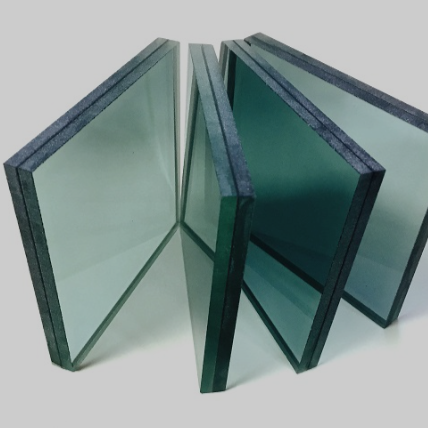
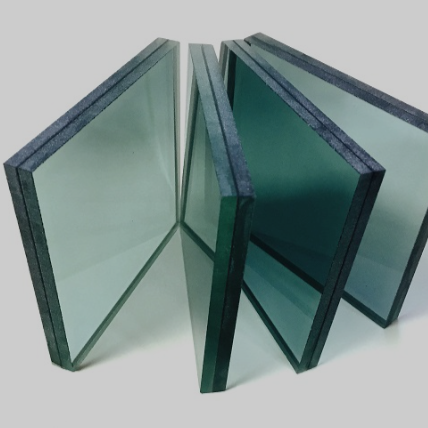
Laminated glass is another excellent option to consider for display cases. This type of glass consists of two or more layers of glass with a plastic interlayer, typically made of polyvinyl butyral (PVB) or ethylene-vinyl acetate (EVA). This construction method significantly enhances the strength and safety of the glass compared to regular, single-pane glass. If you’re asking, “What is the best glass for display cases?” laminated glass could be the perfect solution.
One of the primary benefits of laminated glass is its safety feature. The plastic interlayer holds the glass shards together in the event of a breakage. Instead of shattering into dangerous, sharp pieces, the glass remains largely intact, reducing the risk of injury. This characteristic is especially crucial in environments where safety is a top priority, such as schools. Public buildings also benefit from this feature. Busy retail stores find it particularly important. Laminated glass maintains its integrity even when damaged. This makes it a secure and reliable option for various applications.
In addition to safety, laminated glass offers excellent soundproofing qualities. The plastic interlayer dampens sound vibrations, making it an effective barrier against noise. This soundproofing capability is particularly beneficial in busy store environments, offices, and residential buildings located in noisy areas. By reducing the amount of sound that passes through, laminated glass helps create a quieter and more comfortable environment for both customers and employees. This quality makes laminated glass an ideal choice for areas where maintaining a peaceful atmosphere is essential.
Laminated glass also provides superior strength and durability. The multiple layers of glass combined with the plastic interlayer make it much stronger than regular glass. It can withstand greater impacts without breaking, making it suitable for high-traffic areas and environments where the glass might be subjected to stress. This durability ensures that display cases made with laminated glass have a longer lifespan, reducing the need for frequent replacements and saving costs in the long run.
Another advantage of laminated glass is its versatility in design. Manufacturers can produce it in various thicknesses and sizes to meet specific requirements. Additionally, they can tint or treat laminated glass to enhance its properties, such as increasing UV protection or adding decorative elements. This flexibility allows for customized solutions that cater to the unique needs of different applications, from simple display cases to complex architectural features.
Laminated glass also offers UV protection, which helps prevent fading and damage to items displayed behind it. The interlayer blocks most of the harmful UV rays, protecting sensitive products such as artworks, textiles, and electronics from the damaging effects of prolonged exposure to sunlight. This UV resistance is particularly important for displays located near windows or in areas with high levels of natural light.
Maintenance and cleaning of laminated glass are straightforward, similar to regular glass. It can be cleaned with standard glass cleaning solutions and does not require any special treatments. Its smooth surface resists dirt and grime buildup, making it easy to maintain a clean and clear appearance. This low maintenance requirement adds to the practicality and cost-effectiveness of laminated glass for busy commercial environments.
In conclusion, laminated glass stands out as a versatile and reliable choice for display cases. Its combination of strength, safety, soundproofing, and UV protection makes it an ideal material for various applications. Whether you are looking to enhance the safety of your displays, reduce noise in a busy environment, or protect sensitive items from UV damage, laminated glass offers a comprehensive solution. At Fairwill Display, we understand the importance of using high-quality materials, and laminated glass is an excellent option that meets our stringent standards for durability and performance. If you’re still considering “What is the best glass for display cases?” laminated glass could very well be the answer you’re looking for.
Polycarbonate: The Ultimate in Durability
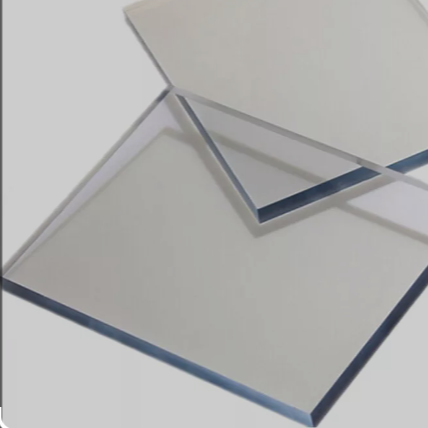
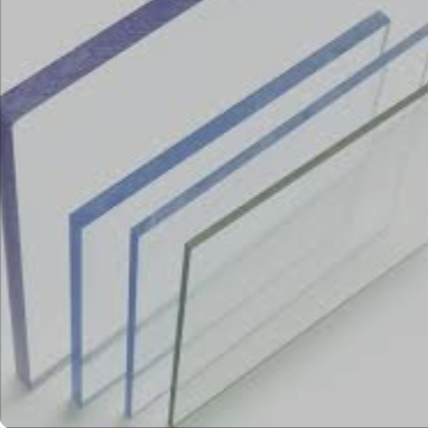
Polycarbonate is another material worth mentioning when considering what is the best glass for display cases. Known for its exceptional strength and durability, polycarbonate is even more impact-resistant than acrylic, making it one of the toughest materials available on the market. Its strength makes it suitable for use in bulletproof windows and riot shields, demonstrating its robustness and reliability. If you’re looking for an exceptionally durable option for your display cases, polycarbonate is definitely worth considering.
One of the primary advantages of polycarbonate is its impact resistance. This material can withstand significant force without cracking or breaking, making it an ideal choice for environments where durability is essential. In high-traffic areas such as retail stores, museums, and public spaces, display cases made from polycarbonate can endure accidental bumps and knocks without sustaining damage. This resilience ensures that your displays remain intact and secure, providing long-term protection for your valuable items.
Polycarbonate also boasts excellent optical clarity, often surpassing that of glass. It allows more light to pass through than glass, making your displays look brighter and more attractive. The high transparency of polycarbonate ensures that the items inside the display case are easily visible, enhancing their visual appeal. This clarity is particularly beneficial for showcasing products where detail and presentation are critical, such as in jewelry stores, electronics shops, and exhibitions.
In addition to its strength and clarity, polycarbonate is lightweight, making it easier to handle and install compared to traditional glass. This lightweight nature reduces the labor and effort required for installation, which can be especially advantageous for large-scale projects or frequent display changes. The ease of handling polycarbonate also means that it can be used in more creative and flexible display designs, allowing businesses to create unique and eye-catching presentations.
Polycarbonate’s versatility extends to its resistance to a wide range of environmental factors. It can withstand extreme temperatures, making it suitable for both indoor and outdoor applications. Unlike glass, which can become brittle in cold weather or soften in high heat, polycarbonate remains stable and durable under varying conditions. Additionally, polycarbonate is resistant to UV radiation, which prevents it from yellowing or degrading over time. This UV resistance is crucial for displays exposed to direct sunlight, ensuring that they maintain their clarity and appearance for many years.
Another significant advantage of polycarbonate is its ease of maintenance. It can be cleaned with simple, non-abrasive cleaning solutions, and its surface is resistant to scratching and other forms of damage. This makes polycarbonate a practical choice for busy environments where cleanliness and appearance are paramount. Regular cleaning is all that is needed to keep polycarbonate display cases looking pristine and clear, ensuring that your products are always presented in the best possible light.
Moreover, polycarbonate can be easily fabricated and molded into various shapes and sizes, offering tremendous flexibility in design. Whether you need standard display panels, curved designs, or complex three-dimensional structures, polycarbonate can be tailored to meet your specific requirements. This adaptability allows businesses to create customized display solutions that perfectly align with their branding and presentation needs.
While polycarbonate may have a higher initial cost compared to some other materials, its long-term benefits often outweigh the investment. The durability and low maintenance requirements of polycarbonate mean that it rarely needs to be replaced, saving money on repairs and replacements over time. For businesses looking to invest in high-quality display solutions, polycarbonate provides excellent value by combining strength, clarity, and versatility.
In conclusion, when considering what is the best glass for display cases, polycarbonate stands out as a top contender. Its unmatched impact resistance, superior optical clarity, lightweight nature, and ease of maintenance make it an ideal choice for a wide range of applications. At Fairwill Display, we understand the importance of using high-quality materials for our products, and polycarbonate meets our stringent standards for durability and performance. Whether you are designing display cases for retail, exhibitions, or public spaces, polycarbonate offers a reliable and attractive solution that ensures your products are showcased to their fullest potential.
PETG: A Versatile and Durable Alternative to Glass
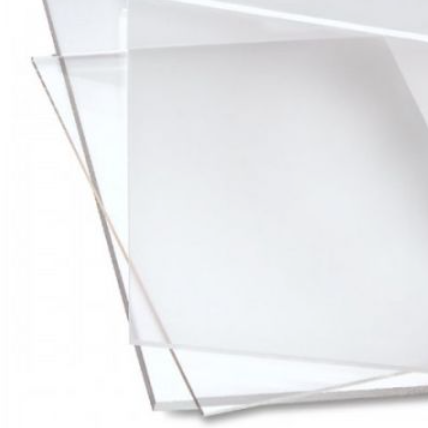
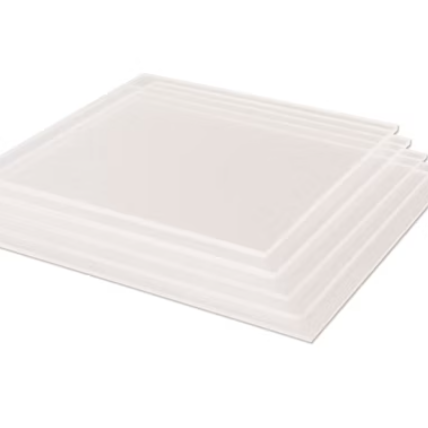
PETG, or polyethylene terephthalate glycol, is another great material to use instead of glass. This versatile plastic is renowned for its clear, durable, and easy-to-work-with properties. PETG’s combination of transparency and toughness makes it an excellent choice for a variety of applications, especially in environments where traditional glass might not be the best option. If you’re considering what is the best glass for display cases, PETG is certainly worth exploring.
One of the standout features of PETG is its clarity. Similar to glass, PETG offers excellent optical clarity, ensuring that the items on display are easily visible and showcased in their best light. This high level of transparency is essential for display cases in retail stores, museums, and exhibitions where visual appeal is paramount.
Durability is another key advantage of PETG. This material is highly resistant to impacts, making it far less likely to crack or shatter compared to glass. This durability is particularly important in busy environments such as retail stores and public spaces where display cases may be subjected to frequent handling and occasional bumps. The robust nature of PETG ensures that your display cases remain intact and functional even under heavy use, reducing the need for frequent replacements and repairs.
In addition to its clarity and durability, PETG is also food-safe. This makes it an ideal material for displays in food stores, restaurants, and other settings where hygiene is crucial. Unlike some other plastics, PETG does not contain harmful chemicals that could contaminate food products. This safety feature makes PETG suitable for use in food displays, providing a clear and durable barrier that protects food items while allowing customers to view them clearly.
Another significant benefit of PETG is its flexibility. PETG is more flexible than both acrylic and polycarbonate, which makes it less likely to crack under stress. This flexibility allows PETG to absorb impacts better and return to its original shape without sustaining damage.
PETG’s resistance to chemicals is another major advantage. It can withstand exposure to a wide range of chemicals without degrading or losing its structural integrity. This chemical resistance makes PETG suitable for use in various environments. It can withstand contact with cleaning agents, solvents, or other harsh substances. This makes it a practical choice for many applications.
Moreover, PETG is easy to work with, allowing for a high degree of customization. It can be easily cut, drilled, and molded into various shapes and sizes, providing flexibility in design and application. This adaptability allows businesses to create customized display solutions that meet their specific needs, whether it’s for unique product displays, protective barriers, or signage. The ease of fabrication makes PETG a practical choice for creating intricate and visually appealing displays.
Cost-effectiveness is another important consideration when choosing materials for display cases. While PETG may have a slightly higher initial cost compared to some other plastics, its long-term benefits often make it a more economical choice. The durability, flexibility, and chemical resistance of PETG reduce the need for frequent replacements and maintenance, resulting in cost savings over time. For businesses looking to invest in high-quality display solutions, PETG offers excellent value by combining performance with affordability.
In conclusion, PETG, or polyethylene terephthalate glycol, is a versatile and durable material that serves as an excellent alternative to traditional glass. Its combination of clarity, durability, food safety, flexibility, and chemical resistance makes it an ideal choice for a wide range of applications. Whether you’re designing display cases for food stores, retail environments, or industrial settings, PETG provides a reliable and attractive solution. At Fairwill Display, we understand the importance of using high-quality materials for our products, and PETG meets our stringent standards for durability and performance. If you’re still considering what is the best glass for display cases, PETG could be the answer you’re looking for.
Choosing the Right Glass for Your Needs
When deciding what is the best glass for display cases, it’s essential to consider your specific needs and environment. Each type of glass or glass alternative brings its own unique set of advantages, making it crucial to match the material to your particular requirements. Understanding these differences can help you make an informed decision that enhances both the functionality and aesthetic appeal of your displays.
Tempered glass is an excellent option for high-traffic areas where safety is a primary concern.
Acrylic, offers a combination of lightweight durability and UV resistance. Its lightweight nature makes it easier to handle and install, which can be a significant advantage for large-scale displays or frequent setup changes.
Laminated glass provides added strength and soundproofing, making it an excellent choice for busy environments. Laminated glass’s soundproofing qualities also make it ideal for noisy areas, helping to create a more serene and focused display environment.
Polycarbonate stands out for its extreme durability and optical clarity. It is one of the toughest materials available, used in applications requiring high impact resistance, such as bulletproof windows and riot shields.
PETG, offers versatility and chemical resistance. It is clear, durable, and easy to work with, making it suitable for a variety of applications. PETG is also food-safe, which makes it an excellent choice for displays in food stores and other settings where hygiene is critical.
We understand that choosing the right material for your display cases is crucial to the success of your presentation. It’s also essential for the safety of your products. We offer a range of high-quality glass and glass alternatives tailored to meet your specific needs. We design our products to enhance the visibility and appeal of your displays while ensuring durability and safety. Whether you need the strength and safety of tempered glass, we have the perfect solution for you. If you prefer the lightweight and UV-resistant properties of acrylic, we can provide that as well. The added benefits of laminated glass are also available. For those seeking extreme durability, polycarbonate is an excellent choice. Additionally, we offer PETG for its versatile and chemical-resistant qualities.
In conclusion, determining what is the best glass for display cases depends on various factors, including safety, durability, clarity, and cost. Tempered glass, acrylic, laminated glass, polycarbonate, and PETG each offer unique benefits that make them suitable for different applications. By understanding these options and considering your specific requirements, you can make an informed decision. This decision will enhance the effectiveness and appearance of your display cases.
Thank you for taking the time to explore these options with me. If you have any questions or need further assistance, please feel free to reach out. We commit to providing you with the best solutions for your display needs. So, the next time you wonder, “What is the best glass for display cases?” remember the options we’ve discussed and choose the one that best fits your needs.
